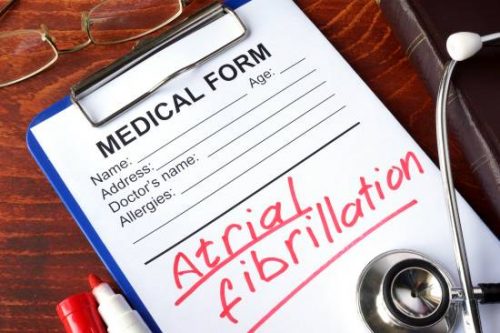Heartbeat disorders can be dangerous and even life-threatening, so it is important to seek medical attention if you notice any changes in your heartbeat.
There are two types of heartbeat disorders: regular and irregular. A regular heartbeat is one in which the heart beats in a regular pattern. An irregular heartbeat, on the other hand, is one in which the heart beats in an irregular pattern.
There are several types of irregular heartbeats, including atrial fibrillation (AFib), atrial flutter (Aflutter), and ventricular fibrillation (VFib). In this article, we are going to take a look at the differences between AFib and Aflutter.
| AFib | Aflutter |
| Atrial fibrillation (AFib). | Atrial flutter. |
| More serious, can lead to blood clots, heart failure, and other heart-related complications. | Less serious compared to AFib. |
| Symptoms of AFib can include chest pain, shortness of breath, and fatigue. | Symptoms of Aflutter can include a racing heart, chest pain, and shortness of breath. |
| Some treatments include surgery such as a catheter ablation. | Rarely need surgery. |
| Caused by high blood pressure, coronary artery disease, and diabetes. | Caused by stress, caffeine, and alcohol. |

AFib is a more serious condition that refers to an irregular heartbeat that can lead to blood clots, heart failure, and other heart-related complications.
Aflutter, on the other hand, is a less serious condition that refers to an irregular heartbeat that is not as serious as AFib.
Symptoms of AFib can include chest pain, shortness of breath, and fatigue.
Symptoms of Aflutter can include a racing heart, chest pain, and shortness of breath.
Both AFib and Aflutter can be treated with medication and/or surgery. Treatments for AFib and Aflutter include medications such as blood thinners, beta blockers, and calcium channel blockers.
Some treatments for AFib also include surgery such as a catheter ablation. Catheter ablation is a procedure in which a catheter is inserted into the heart to destroy the tissue that is causing the irregular heartbeat.
Side effects of medications used to treat AFib and Aflutter can include constipation, diarrhea, and dizziness.
Doctors may also recommend lifestyle changes such as quitting smoking, eating a healthy diet, and getting regular exercise to help control your heartbeat.
It is rare for a person to have only AFib or only Aflutter. Most people with an irregular heartbeat have a combination of both AFib and Aflutter.
The reason for this is that there are many different causes of an irregular heartbeat. Some of the causes of AFib include high blood pressure, coronary artery disease, and diabetes. Some of the causes of Aflutter include stress, caffeine, and alcohol.
These causes can vary from person to person, so it is important to work with your doctor to find the cause of your irregular heartbeat and to develop a treatment plan that is right for you.





